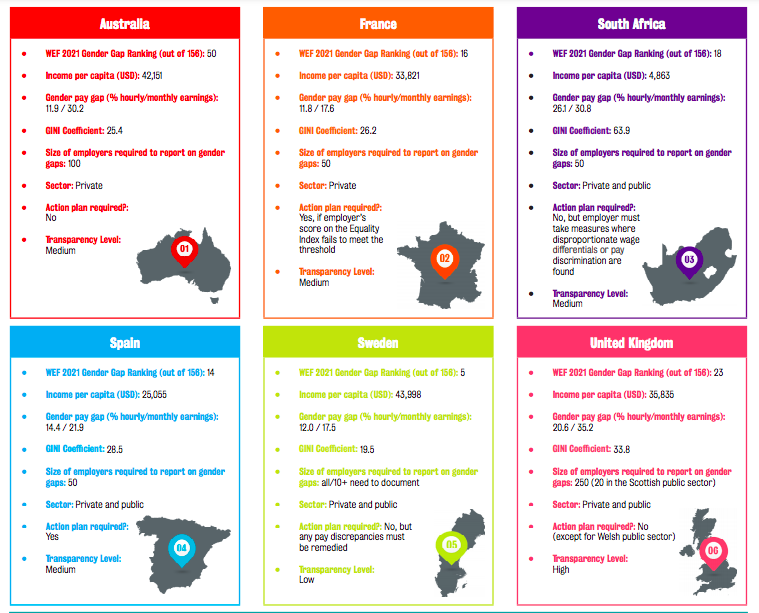GPG reporting internationally
Requiring companies to report on their gender pay gaps is becoming more common around the world. A 6-country analysis from the Global Institute for Women’s Leadership at King’s College London draws on 80 interviews with people well placed to judge what impact this is having, and what the main challenges are. The countries’ scorecards are below.

The report’s conclusions are to some extent predictable (though none the less valid for all that): a need for greater transparency and accountability; stronger sanctions; measurable targets; and integration of policies to deal with GPGs at all levels. But the insights from the launch’s widely experienced panel discussion were particularly valuable. More than one participant described how pressures from employees are now an important complement to top-down corporate leads. More and more young people want to work in organisations which reward their staff fairly.
Of course much of this pressure comes from women employees, acting both in their own interests and those of their gender. But my impression was that this is part of a wider desire from younger people generally to work for employers who uphold principles of equity and fairness. Whether or not they’re aware of the Paula Principle (sadly, probably not…), they’d like to see competence properly recognised and fairly rewarded.
This fits with the really rapid growth in momentum behind ESG decision-making, of the kind promoted by ShareAction. (DoI: I am a proud ShareAction AGM Activist.) It would have been interesting to know whether the research extended at all to the investment community, not just as employers themselves but to their behaviour as shapers of corporate behaviour. If that spread more round the world we could really see things shifting.
